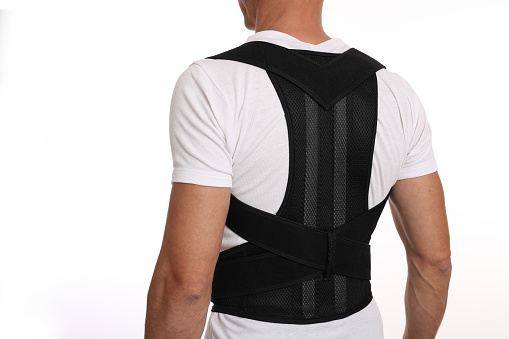Should I wear a back brace at work if I have back pain
There are both pro’s and con’s with wearing a back brace all day, every day when you work:
Let's look at the positives:
- It keeps your back warm
- It keeps you back supported
- Makes you feel more confident when bending and lifting
- Can prevent you from further back pain or flare ups
Let’s now look at the negatives.
- Your body gets used to wearing it
- You feel less confident when not wearing it
- You feel vulnerable lifting heavy objects without it
- Constant use can weaken your back muscles (Muscle atrophy)
People who wear back braces fall into different categories. We will attempt to break each category down in order to give the best advice suited to your situation.
1. You wear a back brace because you feel more supported
Unless it is absolutely imperative that you wear a back brace, then we strongly recommend that avoid using one. If you do not have back pain, or your pain is infrequent and mild then you still have reasonable muscle strength in your back muscles and the muscles that support your back.
Constant use of a back brace will inhibit the use of these muscles and over time they will weaken which could result in either bring on back pain or worsening your already mild condition.
2. You wear a back brace only when your back is sore
This is wise. If your only flares up from time to time, then by all means use the brace when you are having a painful day/ afternoon. This will help take the pressure off your already tired and fatigued back and keep the area warm. Infrequent use of a back brace still means that you are keeping your back muscles and the muscles that support the back strong.
3. You wear a back brace only when you lift heavy objects
Our advice here will depend on a few factors. i) are you lifting heavy objects, just a few times or ii) are you repeatedly lifting heavy objects for a lengthy period.
If you are only lifting heavy objects a few times, we recommend that you get used to lifting without a back brace. If you are hurting yourself lifting something heavy (in the absence of fatigue) then your lifting technique is the issue and this needs to be addressed.
Lifting heavy things on a repetitive basis is one of the most challenging things to manage, especially if you are already suffering from a back complaint. Correct technique often falls away as fatigue sets in. You can only lift with true technique to the extent that your muscles that support your back are able to assist. I.e. if they are tired and fatigue, then your technique fails and often times so does your back.
If possible, we recommend intermittent use of a back brace. For e.g., for the first block of time lift without a back brace, this might start off small like 5-10mins, or 20-30 lifts. Each day/ week try and extend the length of time or volume you lift without a back brace.
4. You wouldn't dare lift without your back brace for fear of throwing your back out
We strongly recommend you seek competent advice in regard to a rehabilitative strengthening program to address your weaknesses. If you already feel vulnerable bending and lifting without a brace, then a future flare up is inevitable. Your back will continue to be weakened and all it will take will be something quite innocuous, like bending over to pick up one of the kids, or even just a tea towel in the kitchen and you will be flat on your back with a severe back spasm. A back brace may help you get through the day to day right now; however, it will catch up with you so get it looked out sooner rather than later.
Back Solution across America has a proven record with acute and chronic back pain sufferers exceeding in excellence across the country. We have treated thousands of patients that range from Olympic athletes, professional athletes as well as everyday pain sufferers. Our rapid growth across the country will ensure a local clinic will be in your area soon to address you acute and chronic back pain.

